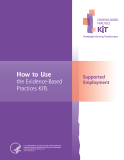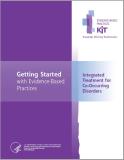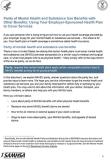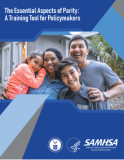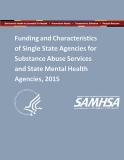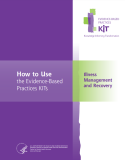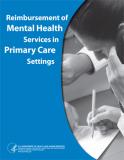
This white paper report identifies and proposes strategies to address Medicaid and other reimbursement policies that may pose barriers to mental health services in primary care settings. It presents findings, discussion by an expert panel, and recommended action steps.
Units per Product
Download
Reimbursement of Mental Health Services in Primary Care Settings
File Type: PDF
File Size: 1.64 MB


